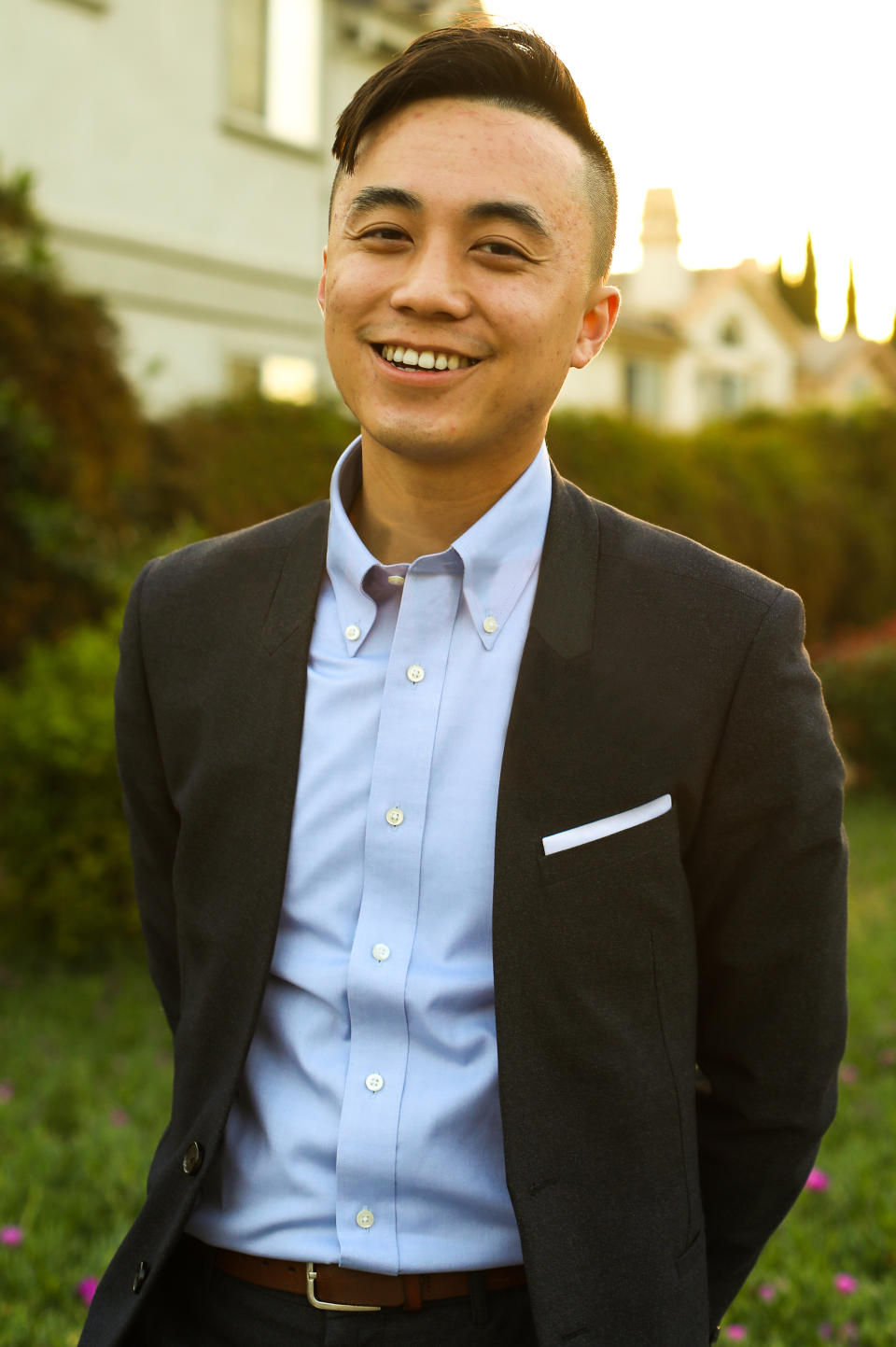Meet the 25-year-old legislator shattering generational, cultural, and identity norms
Democrat Alex Lee made history in a few ways when he won California’s 25th District Assembly race on Nov. 3. At 25, he’ll become California’s youngest Asian American state legislator ever, the first openly bisexual state legislator and the first assembly member from Generation Z.
The district, which encompasses Fremont, Santa Clara, San Jose, Milpitas and Newark, and straddles the East Bay and Silicon Valley, is one of the heaviest Asian state legislative districts in the state.
“It’s incredibly exhilarating because our campaign was really the underdog, and we were outspent 15 to 1,” Lee told NBC Asian America. “The establishment didn’t support us, but after we knocked on 30,000 doors, it paid off and we had a great victory.”
Lee said he had thousands of conversations with people in his district and believes that listening to what they cared about was why a sweeping majority gave him their votes.
After breaking out of a crowded primary, Lee defeated Republican Bob Brunton with more than 72 percent of the vote. Lee secured endorsements from Sen. Bernie Sanders, I-Vt., and former presidential candidate Andrew Yang, among others.

During his campaign, Lee focused on a progressive platform that included affordable housing, education, health care for all, climate change, traffic and transportation and eliminating corporate influence in politics.
Lee rejected all campaign contributions from corporate, fossil fuel, developer and police interests and said that he would introduce a bill to get corporate money out of politics as soon as he takes office on Dec. 7.
Lee, who is about half the average age of California Assembly members, said his relationship with technology, growing up in a post-9/11 world and that he was the only candidate who experienced K-12 and higher education in the 21st century gave him a fresh perspective.
“I’m one of the most outwardly left progressive members, so I do think I’ll ruffle a few feathers with people of different political persuasions,” Lee said. “It is my hope and responsibility to bring more progressive leaders to the state.”
The son of immigrants from Hong Kong — his mother is a nurse at a hospital, and his father is an engineer — Lee was born and raised in San Jose and Milpitas and studied political science at University of California, Davis. He won a student Senate race six years ago and was elected president of the university in 2016.
While in college, Lee interned for then-Rep. Mike Honda and several assembly members, including his District 25 predecessor, Kansen Chu. After graduating in 2017, Lee worked as a legislative aide for state Sen. Henry Stern and as a field representative for Assemblymember Evan Low.
Like so many young adults, Lee still lives at home with his family because of the high cost of living in the Bay Area. While campaigning, he worked for an app-based delivery service to help make ends meet. He said he was lucky if he made $20 for two hours of work.
Lee said California’s recent passage of Proposition 22, which exempts firms such as Uber, Lyft and DoorDash from having to classify their gig workers in the state as employees, and was the costliest ballot measure in the state’s history, is a dark sign for democracy.
“The tech companies rely on a business model of worker exploitation,” he said. “Some people ask why I’m naysaying ‘an innovative new business model,’ but it’s not innovative or new; worker exploitation is an old business model.”
One of his goals is to help make a more just society where people don’t have to “slave away for cents on the dollar.”
Lee is also committed to criminal justice reform. In June, he was arrested while peacefully protesting the death of George Floyd.
“Experiencing the fraction I did with my arrest and process, and even the way our local police officers exercised the exact same police brutality that we see across the country, is evidence to me that this problem is endemic across the country,” said Lee, whose case was eventually dismissed. “It’s an institutional problem, and it’s far beyond a couple bad apples — the whole tree is spoiled and we need to replant the orchard.”
He added that no lives, especially Black and brown ones, are safe “as long as the spearpoint of the justice system is so pointed at those communities.”
Lee said his own identities as a queer, young Asian Pacific Islander inform his perspective and make him more sensitive to the needs of marginalized communities, even if he doesn’t specifically belong to them.
“Having a cross section of identities informs me to be more conscientious to make sure our policies are inclusive and work for everyone,” he said. “I will always understand that nuance when it comes to my constituency.”
